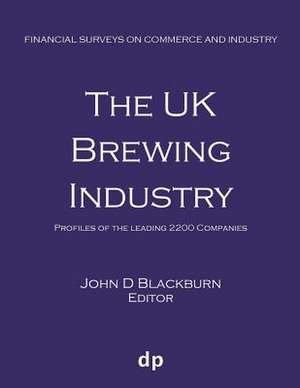The UK Brewing Industry
Editat de John D Blackburnen Limba Engleză Paperback – 12 mar 2019
Preț: 181.40 lei
Nou
Puncte Express: 272
Preț estimativ în valută:
34.72€ • 36.11$ • 28.66£
34.72€ • 36.11$ • 28.66£
Carte tipărită la comandă
Livrare economică 15-29 aprilie
Preluare comenzi: 021 569.72.76
Specificații
ISBN-13: 9781912736119
ISBN-10: 191273611X
Pagini: 258
Dimensiuni: 216 x 280 x 14 mm
Greutate: 0.66 kg
Editura: Dellam Publishing LImited
ISBN-10: 191273611X
Pagini: 258
Dimensiuni: 216 x 280 x 14 mm
Greutate: 0.66 kg
Editura: Dellam Publishing LImited
